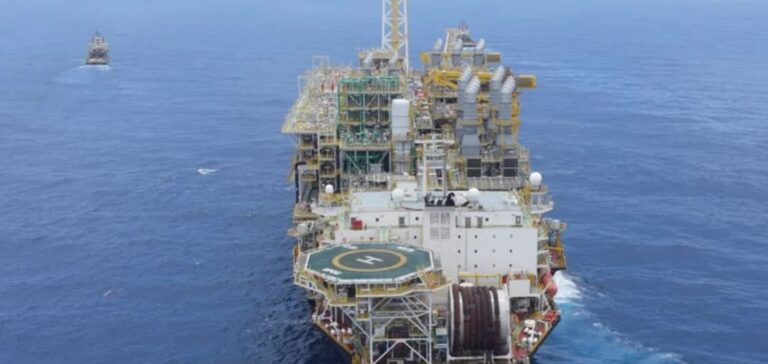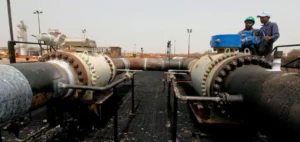TotalEnergies has announced the start of oil production from the Mero-4 phase, the final development stage of the Mero field located on the Libra block, 180 kilometres off the coast of Rio de Janeiro, in the pre-salt area of the Santos Basin. This offshore field is one of the group’s major projects in Brazil.
Launched in August 2021, this phase connects twelve wells to the new Alexandre de Gusmão floating production, storage and offloading unit (FPSO), with a capacity of 180,000 barrels per day. The addition of this unit brings the Mero field’s total capacity to 770,000 barrels per day, distributed across five FPSOs currently in operation. The portion attributed to TotalEnergies amounts to approximately 100,000 barrels of oil equivalent per day at full capacity.
A strategic offshore presence in Brazil
The Mero field is operated by the state-owned company Petróleo Brasileiro S.A. – Petrobras (38.6%) in consortium with TotalEnergies (19.3%), Shell Brasil Petróleo Ltda (19.3%), China National Petroleum Corporation (CNPC, 9.65%), China National Offshore Oil Corporation (CNOOC, 9.65%) and Pré-Sal Petróleo S.A. (PPSA, 3.5%), representing the Brazilian government in the non-contracted area.
The Mero-4 project marks the completion of the field’s development, with four FPSO units brought online within a three-year period. This rapid execution pace reflects the consortium’s industrial commitments to a reservoir identified as one of the most productive in Brazil.
A growth driver for TotalEnergies
TotalEnergies sees the Mero field as a key element of its deep offshore growth strategy. The company aims for an average annual production increase of 3% between 2024 and 2030. The site’s high yield and extracted volumes are expected to generate strong cash flows for the group over the coming years.
The project also includes a system for reinjecting associated gas into the reservoir, designed to limit emissions without relying on routine flaring. This technical configuration forms part of TotalEnergies’ industrial strategy to strengthen its presence in major offshore zones with low operating costs.






















